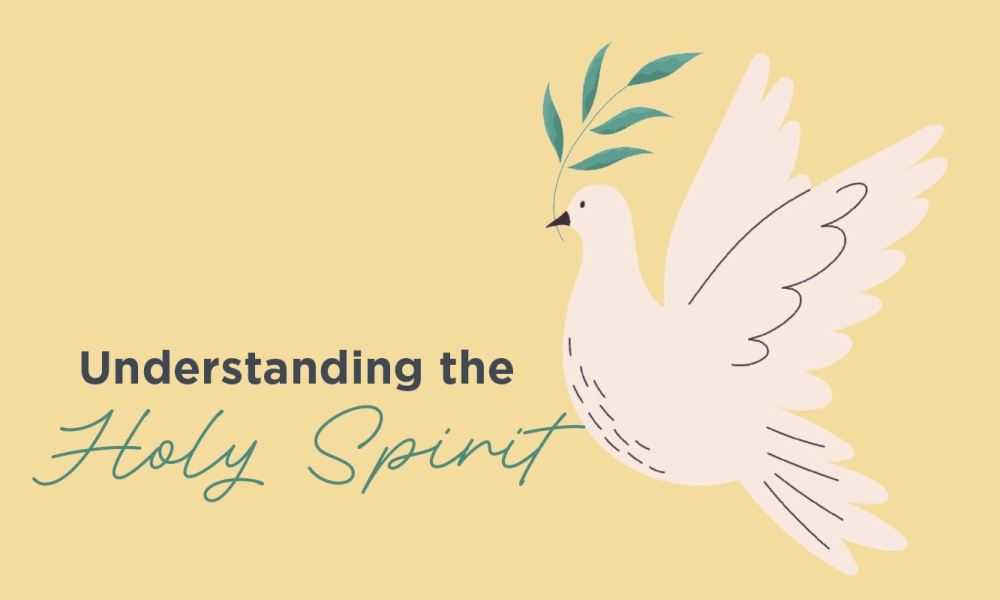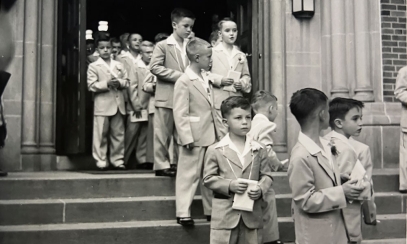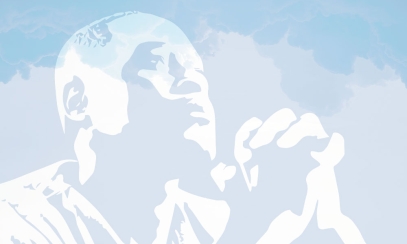
Understanding the Holy Spirit
Continuing to follow the mandate of Pope St. John Paul II’s encyclical, Fides et Ratio, I will attempt to apply reason to the mysterious third person of the Blessed Trinity, the Holy Spirit.
Continuing to follow the mandate of Pope St. John Paul II’s encyclical, Fides et Ratio, I will attempt to apply reason to the mysterious third person of the Blessed Trinity, the Holy Spirit.
A challenge from the outset
First of all, the Holy Spirit is more difficult for our human intellect to comprehend compared with the Father and the Son. I mean, we all know what fathers and sons are, but spirits, not so much.
Flowing from the Church’s teaching that the Holy Spirit is the love between the Father and the Son, reason would seem to dictate that the Holy Spirit has been in the Father and the Son for all time. Indeed, since God is love, and the Holy Spirit is that love shared between the Father and Son, then the Holy Spirit would seem to be the actual essence of God — love.
A human analogy
Consider the relationship among a grandfather, father and son. Relatives might say, “Isn’t little Johnny III, just like his father, John, Jr., and they both are just chips off the old block, if you remember how Grandpa John was?” The essence of Grandpa pervades both the father and the son, even though they are separate persons. So it is with God: the Holy Spirit pervades the Father and the Son, and is even more importantly the loving essence of God that has been in the Father and Son for all time.
Jesus embodies the Holy Spirit
At one point in salvation history, the Father sent his Son to earth. The Son would express the Father to us in ways we could understand. But the Son could not come without the Holy Spirit within him, since the persons of the Trinity are inseparable.
So the Son, in body and Spirit, spoke for the Father for 33 years. At the Ascension, the Son and his Spirit went back to the Father. However, the Son left his body here on earth in the form of the Church, which we call the Mystical Body of Christ. He also left his body here in the holy Eucharist.
At Pentecost, with the fledgling new Church in a frightened state of confusion, the Father and the Son sent their mutual spirit of love, the Holy Spirit, to infuse Jesus’ Mystical Body, the Church, once again with his spirit. So Jesus was back, particularly in the Mass, where we receive his flesh and blood and leave with his spirit of love.
Does this mean that the Father and the Son in heaven have no Spirit in them? Quite the contrary. The Holy Spirit is the timeless love between the Father and the Son, and love cannot be separated from the two lovers. However, this same Holy Spirit of love that pervades the Father and the Son in heaven can also be in us at the same time to the extent that we share in and exhibit the love between the Father and the Son.
Devotion to the Holy Spirit
As the little book, “Devotion to the Holy Spirit,” written by the Benedictine Convent of Clyde, says “Even though Jesus was no longer with [the disciples], surprisingly they now knew him more intimately than ever before. They were now one-in-spirit with Jesus.”
The Holy Spirit brought Jesus back to the apostles, and as promised, they understood our savior even better than when Jesus was with them on earth in his human body.
I was encouraged by Herbert Musillo’s book, “Gregory of Nyssa’s Mystical Writings” (1979), in which St. Gregory seems to confirm my Fides et Ratio speculation on the Holy Spirit.
“The Son who exists always in the Father can never be separated from him, nor can the Spirit ever be divided from the Son who through the Spirit works all things. He who receives the Father also receives at the same time the Son and the Spirit. It is impossible to envisage any kind of severance or disjunction between them: One cannot think of the Son apart from the Father, nor divide the Spirit from the Son. There is between the three a sharing and a differentiation that are beyond words and understanding.”
One final thought: Why isn’t the extended liturgical “Ordinary Time” that follows Pentecost, called “Holy Spirit time?” It seems that we should be celebrating the Holy Spirit among us from Pentecost to Christ the King!
Thomas Dorsel, Ph.D., is professor emeritus of psychology and a graduate of the University of Notre Dame. He lives on Hilton Head Island with his wife Sue and is a parishioner at St. Francis by the Sea Church. Visit him at dorsel.com.



